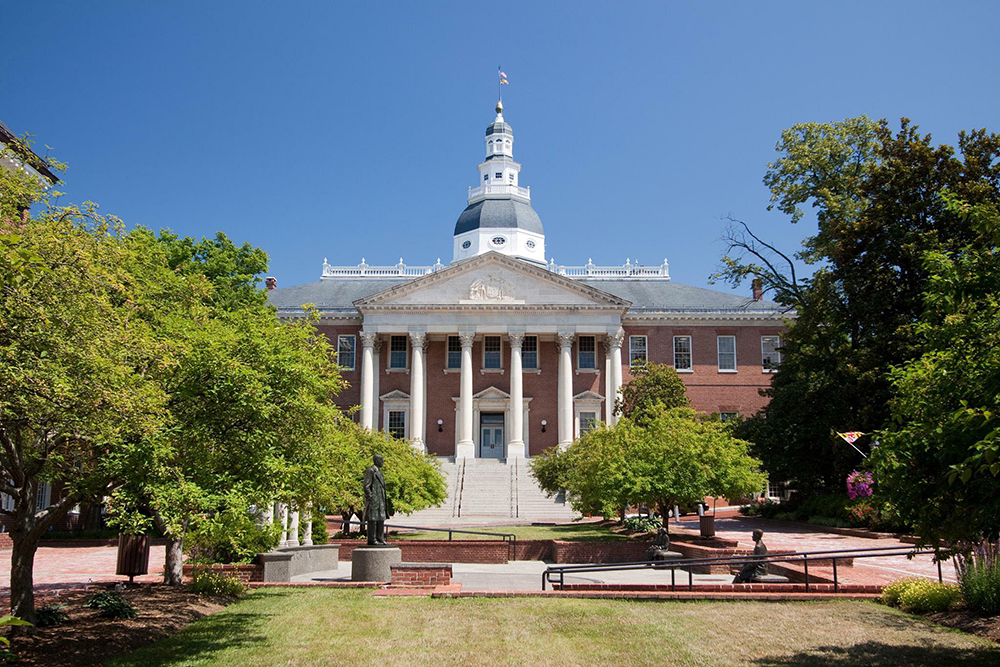A Maryland House of Representatives Joint Resolution urging Congress to grant Washington, D.C. official statehood is under consideration for the Maryland General Assembly, contributing to both regional and national pushes for D.C. to become the 51st state.
The bill was first heard Feb. 25 but did not receive enough votes to move forward, meaning it will be held under review by the House Rules and Executive Nominations Committee until it receives another hearing.
A Maryland House Joint Resolution undergoes the same procedure as a bill; however, resolutions are generally introduced to supplement continuing or emergency appropriations. House Joint Resolution 7, introduced to the House of Delegates by Del. Gabriel Acevero (D-District 39) continues the ongoing resurgence in support for D.C statehood.

The Maryland House Joint Resolution, co-sponsored by 36 delegates, follows the Washington, D.C. Admission Act, or H.R. 51, which was introduced to the U.S. House of Representatives by Del. Eleanor Holmes Norton (D-D.C.) on Jan. 3 and aims to establish D.C. as the 51st state. Rep. Elijah Cummings (D-Md.), chairman of the House Committee on Oversight and Reform, the primary investigative committee in the House, promised to hold a hearing and markup on the bill. This is the first time a D.C. statehood bill has received a hearing in 26 years, according to D.C. Statehood Yes We Can!, a group which advocates for D.C. legislative and budget autonomy.
Despite its positive reception among Democrats, D.C. statehood should be received with bipartisan support, according to Josh Burch, founder of Neighbors United for D.C. Statehood, a grassroots advocacy group.
“We’re the only democracy in the developed world where we deny the residents of the capital equal political rights. So, to me it’s not a partisan issue,” Burch said in an interview with The Hoya. “I think that the real question is: Why isn’t the other party supporting it? I think that’s the real tragedy.”
The For the People Act, or H.R. 1, was introduced to the House on the same day as H.R. 51 and includes language endorsing statehood. The For the People Act, sponsored by Rep. John Sarbanes (D-Md.), has since been passed by the House and awaits a vote in the Senate.
The District’s population of over 700,000 residents is comparable to the populations of other registered states and even supersedes the populations of Wyoming and Vermont, according to a 2017 Census Bureau report referenced in the House joint resolution.
However, D.C. currently operates as a district under federal jurisdiction. D.C. voters are allowed to participate in mayoral and city council elections and elect a delegate to the U.S. House of Representatives. This delegate can only participate in procedural votes and may not vote on the house floor.
Although H.R. 1 was passed in the House by 236 votes, it is unlikely to pass the Senate, as the majority Republican Senate has historically opposed D.C. statehood. Majority Leader Mitch McConnell previously referred to H.R. 1 as a terrible bill, and said he would not give it any floor time in the Senate.
D.C. residents have not received the same benefits as other U.S. citizens, and achieving statehood will allow residents to have more of a voice in government, according to Burch.
“It is a power grab by the people of the District of Columbia who have been denied power in our union for over 200 years,” Burch said. “It’s about ensuring the people of the nation’s capital have shared rights and responsibilities.”
While the District’s statehood presents valid concerns for both Democrats and Republicans, other aspects, such as D.C.’s small size, have the potential to affect its viability as a state, according to TJ Mukundan (COL ’21), director of roundtables for the Georgetown Bipartisan Coalition. GBC seeks to promote discussion between Democrats, Republicans and independents.
“D.C. would be an incredibly small state, and I would be more interested in examining alternative means of giving D.C. residents representation that stop short of full statehood,” Mukundan wrote in a statement to The Hoya.





















Charles Anthony • Sep 29, 2019 at 2:17 pm
Washington, DC used to belong to Maryland, why not just return DC to Maryland…All that would have to be changed are the license plates and drivers permits….The residents of DC would than win the right to vote for Senators and congressman…